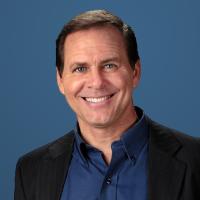UFC Champion Fighter on Keeping the Right Perspective
Iranian-born American, Beneil Dariush, is among the top-ranked Ultimate Fighting Championship fighters in the world, using mixed-martial arts in the Octagon to battle. But Beneil is the uncommon competitor, who speaks without mixed-messages after the fight is finished, declaring this after a recent win: “My people in Iran, I know you’re struggling, I know you’re fighting for freedom! I know it’s a tough struggle. I want you guys to know we’re praying for you and we love you! Let me tell you one more thing, it may be the most important thing you’ll ever hear. There is true freedom! A freedom no one can take from you in the name of Jesus Christ, the Son of God! Don’t ever forget that! If you remember one thing I say, remember that!”
Question: “That’s something we normally don’t hear after a fight. What’s been the response?”
Beneil: “The body of Christ has been so supportive – and I have a lot of friends that are Muslim. The Muslim community, the pushback has been either very harsh or its been like, ‘Hey you know we understand and we just don’t agree with the Son of God part.' And then either silence from the rest of the world of just kind of disdain, almost. I think that’s been one of the easiest thing to do with me is just kind of push me out.”
Question: “How do you approach your personal compatibility with being an Iranian-born American with a perception that the two ideologies are incompatible?”
Beneil: “I consider myself an American. I've spent most of my life here. I, I've had freedoms here that I didn't have in Iran and I've been able to use that to be the person that I am now. But at the same time, those are my people back there. I still have family back there and that's just not them in general. I want to recognize that suffering and I want to love on them.”
Question: ”Being tethered to both countries what does freedom mean to you?”
Beneil: “Freedom is being able to choose, right? In Iran, the way my parents would explain it – they didn’t have that ability! It’s such a privilege because it’s not normal. It doesn’t happen all over the world. So I recognize the privilege and I am so grateful for it.”
Question: “Empathy from where you sit, how you feel, what’s most foundational when it comes to sitting in the seat of another?”
Beneil: “That’s always the first question you should ask: ‘Why should you put yourself in somebody else’s shoes?’ And then you remember what the Lord says, ‘To love God with all your heart and then love your neighbor. If I can’t do that, if I can’t love my neighbor, then how do I expect Him to love me?”
Question: “What drew you to the sport?”
Beneil: “Fighting was never difficult. Fighting is what I call my first nature. You put me in any situation and you tell me you’re to fight out of it, and it’s like - sounds good! I started doing jujitsu when I was 18 and I just kept pushing, and kept pushing, and kept pushing. As a competitor, nothing brings me more joy than breaking my opponents.”
Question: “Take us in the Octagon, what’s your mindset?”
Beneil: “Before I was a believer, all I could think of is I’m not going to lose, I’m going to win. Things have changed a lot since them. But when I’m fighting, to be honest with you, it’s really comfortable. The Octagon just feels very natural. The technique comes naturally because I put so much time in.”
Question: “Do you draw on a rage or any anger?”
Beneil: “Nah. It would be really hard to do that. First thing I always think about is if you hate your brother in your heart you’ve committed sin. And so you look at the person in front of you that you’re going to be fighting – same dream as you, probably has a family just like you do, trying to support them, trying to make a life for himself. I have to just recognize that I’m in the battlefield and the same people I’m battling I’m suppose to love.”
Question: “You came to the Lord, you were 22 and it's as if God was wooing you …”
Beneil: “The thing that drew me to Him, was Him! Actually it was Jesus! When you read the scriptures and seeing that He didn’t have that brokenness and all the things that I have that I know are wrong, He didn’t have and then on top of that, He’s willing to give up His life for us. He gives up everything for me. His perfect love casts out all fear. His perfect love casts out the brokenness in me.”
Question: “Is it a conflict for you as a fighter and Christ’s follower, the principle of turning the other cheek? How do you resolve that?”
Beneil: “We have to be servants. I’m a leader, but I’m a servant in my house. In a lot of situations I am a servant. I understand what it means to turn the other cheek and when the time is right you just got to know the difference. I believe it was the Apostle Paul said, ‘I became all things to all men in order to save some.’ We do what God tells us to do, so if I have to serve and turn the other cheek, I will. If I have to be a savage, I’ll be a savage.”
Question: “You an evangelist at heart?”
Beneil: “I don’t know what I am at heart because I’m constantly in battle (laughs), you know, but I will tell you this, the Lord told me to make disciples. So that’s what I plan on doing. And after I’m done fighting, I plan on being a missionary. Lord willing.”
Question: “Who do you fight for?”
Beneil: “The Audience of One! Even though I do fight for my family, I always put the Lord first! Because I know if I put Him first everything else takes care of itself. So, I fight for the Lord! I want to live for that perfect love!”




